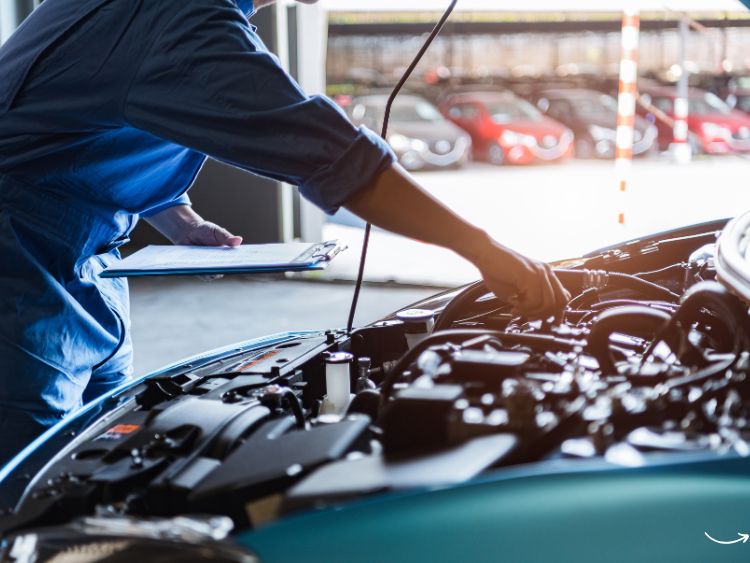Why Automotive Electrical Repair Matters
Ever had your car refuse to start on a rainy Monday morning? It’s frustrating, right? Often, the culprit is an electrical issue lurking within your vehicle. Automotive electrical repair covers a wide range of services that deal with your car’s electrical system—from the battery and alternator to wiring and fuses. Keeping these components in check can save you from being stranded and extend the life of your car.
But before you rush to the nearest mechanic, let’s break down everything you need to know about automotive electrical repair. After all, knowing the basics can help you understand the work being done and ensure you’re not overcharged.
What Is Automotive Electrical Repair?
Simply put, automotive electrical repair involves diagnosing, maintaining, and fixing the electrical systems in your vehicle. These systems control everything from powering the engine to operating lights, locks, and windows.
Automotive electrical repair services typically address:
- Battery and charging system issues (e.g., alternators)
- Starter motor problems
- Wiring and connection repairs
- Electronic control units (ECUs)
- Lights, indicators, and dashboard instruments
Unlike mechanical repairs, electrical fixes often require specialized diagnostic equipment, making it crucial to work with a professional.
How to Know When You Need Automotive Electrical Repair
Your car doesn’t always provide a blinking neon sign that says, “Hey, I need help!” but it does give subtle hints that something’s wrong with the electrical system. Here are some red flags to watch for:
- Your Car Won’t Start
If you turn the key and hear clicking, or worse, nothing at all, it could be the starter, battery, or alternator. - Dim or Flickering Lights
When your headlights or dashboard lights flicker, it might signal an issue with the alternator or a poor electrical connection. - Electrical Components Malfunction
Power windows not rolling up, door locks refusing to budge, or the radio cutting in and out? It’s time to check the wiring or the vehicle’s electrical control system. - Battery Warning Light
That little light on your dash shouldn’t be ignored. It can indicate a faulty battery, alternator, or wiring issue. - Strange Smells or Sounds
Smelling something burning or hearing a faint buzzing noise? That’s often a sign of a short circuit or other wiring issue.
DIY Automotive Electrical Repair: Is It Safe?
When it comes to minor electrical issues, some car owners like to take matters into their own hands. DIY repairs can save you money, but are they always safe? Here’s a quick breakdown:
What You Can Try:
- Replacing the Battery: With the right tools and a bit of patience, swapping out an old car battery is pretty straightforward.
- Changing Fuses: If your vehicle’s fuse has blown, it’s often easy to replace it without professional help.
- Checking for Loose Connections: Loose battery terminals or worn-out connectors can sometimes be adjusted without too much fuss.
What to Leave to the Pros:
- Alternator Repairs: An alternator problem requires specific diagnostic tools.
- Rewiring: Messing with your car’s wiring is risky unless you know what you’re doing.
- ECU Diagnostics: The electronic control unit is the brain of your car, and even minor issues should be addressed by a professional.
Professional Automotive Electrical Repair Services
When it’s time to seek professional help, knowing what to expect can save you both time and money. Here’s a rundown of common electrical repair services offered by auto shops:
- Battery Testing and Replacement
Professional mechanics will test your battery’s health and replace it if needed. - Alternator Repair
If your car’s alternator is failing, a mechanic will test the charging system and, if necessary, install a new alternator. - Starter Motor Repair
A faulty starter can prevent your car from starting altogether. Professional repair services can diagnose and replace the motor. - ECU Reprogramming or Replacement
Your vehicle’s electronic control unit may need reprogramming or replacement if it’s malfunctioning. - Wiring Repairs
Mechanics can fix frayed or corroded wiring, often found in older cars or vehicles exposed to moisture. - Electrical Diagnostics
Using specialized equipment, a professional will test the electrical system to pinpoint and fix problems.
FAQs: Everything You Need to Know About Automotive Electrical Repair
What’s the most common cause of electrical problems in cars?
The most frequent issue is a dead battery, followed closely by alternator failure.
Can a bad alternator drain a car battery?
Yes, a faulty alternator can cause the battery to lose its charge.
How often should I check my car’s electrical system?
A good rule of thumb is to have your electrical system checked annually or whenever you notice a problem.
Why do my headlights keep flickering?
This could be due to a loose connection, a failing alternator, or an issue with the car’s electrical system wiring.
Is it safe to jump-start a car with a bad alternator?
It’s possible, but not ideal. Jump-starting may get the car running temporarily, but it won’t fix the underlying problem.
Summary: Keeping Your Car’s Electrical System in Top Shape
Your car’s electrical system is vital to its overall performance. From starting the engine to keeping the lights on, a well-functioning electrical system ensures that your vehicle runs smoothly and safely.
Remember, while some electrical repairs can be DIY-friendly, many require professional expertise. Regular checks and swift repairs will not only help avoid sudden breakdowns but also extend the life of your vehicle. If you spot any of the warning signs mentioned earlier, don’t hesitate to consult a professional for automotive electrical repair.
Authoritative Sources:
- www.autorepairmagazine.com/electrical-problems
- www.carrepairfacts.com/alternator-repair
- www.diycarrepairtips.com
